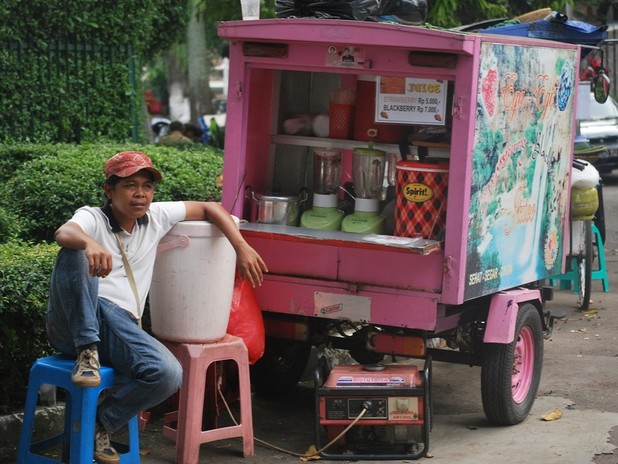June 25, 2014
IDEO.org is excited to kick off another engagement with the Rockefeller Foundation, exploring the role of healthcare among the informal workforce. Over the course of the next four months, the design team will delve into this challenge in Nairobi, Durban, Bangkok, and Manila.
IDEO.org just kicked off a project focused on urban informal workers and their perspectives towards healthcare. This project, in partnership with the Rockefeller Foundation, will take us to Nairobi, Durban, Bangkok, and Manila, in order to uncover behaviors, opportunities, and insights that might exist across cultures.
The informal economy is a major life force of many cities around the globe and informal workers provide services like manufacturing, domestic work, construction, waste picking, and street vending, among many others. Unlike formal workers, informal workers often earn (or don’t earn) a daily wage, don’t pay taxes, and are often exempt from any healthcare benefits or worker health standards provided by the government.
The IDEO.org team is seeking to ground our research in a deeper understanding of the worker as an individual. Who is the informal worker? What is his or her lifestyle? How do these constraints play into their perspective towards health? What influences decision making – whether family, social, or media-driven? What takes priority over healthcare? By more deeply understanding the emotional, spiritual and physical realities of the informal worker lifestyle, we can better identify opportunity areas and begin to prototype healthcare interventions in the space.
As part of this four-month engagement, the team hopes to focus both locally and globally. First, we need to understand the nuances of the four locations that we are visiting. This will help us identify how cultural influences impact the structure of the informal workforce, as well as workers' behaviors towards healthcare. However, we also seek to look laterally across locations to see where broader healthcare opportunities might exist for the informal workforce from a global perspective.
After just a week in the field in Nairobi, we are already inspired by the people we’ve spoken to, each of whom represents a vastly different perspective within the informal workforce. Whether Grace who actively seeks out health coverage, Charles who waited until he could no longer work before seeing a doctor, or Ann who relies on prayer rather than health insurance, the landscape is rich for human-centered solutions.
One of our interviewees used the metaphor of “being bitten by a snake” to describe a major medical disaster in her life – an image that has become resonant in our minds as we dive deeper into our research. She told us “I knew about health insurance, but it wasn’t until I was ‘bitten by a snake’ that I decided to get it.” As we dive into this complex and fascinating landscape, we are optimistic about identifying opportunities to empower the informal workforce with the opportunity to access the resources they need to live a long, healthy life.



